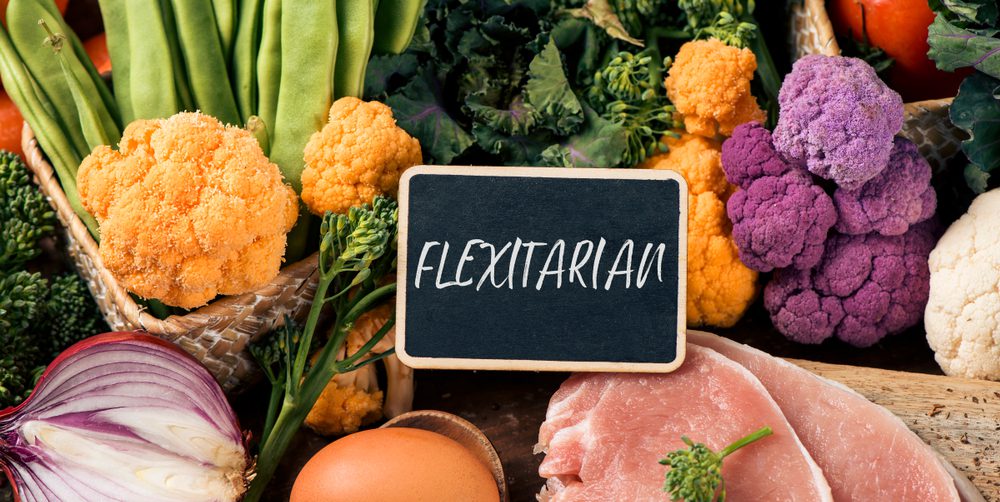Contributors
“Flexitarians” are environmentally and nutritionally aware people who do not wish to define themselves as full-on “vegetarian” or “vegan”, but have decided to reduce the consumption of meat and other animal-based products to the minimum possible.
On the other hand – is the price aspect, which surely plays a big part in our consumption decisions. Just recently, we experienced a global crisis in which we witnessed the shelves of grocery stores around the world empty out, as the images are reminiscent of a consumption apocalypse. The same brands that were snatched from the shelves are the ones that have paved a long and delicate path to the consumer’s consciousness and pocket.
According to a 2021 consumer survey of over 12,000 people (from omnivores to vegans), the price aspect is second most important after the taste aspect, when making a purchase. Moreover, it was rated first for improvement – according to most of them. One of the strongest claims against a plant-based diet is its seemingly high price. Yet in reality, this plant-based diet is not expensive at all.
Contrary to popular belief, this diet is based on the cheapest raw materials you will find in the supermarket. After all, a kilo of lentils, chickpeas, beans, and other legumes costs less than a kilo of meat, chicken, or cheese. However, the prices of meat, cheese, milk, and egg substitutes are indeed relatively high compared to their “equivalent” animal-based products – and the industry is making efforts to close these price gaps.
Appetizer
In the alternative protein market, demand, supply, and competition have not yet reached the equilibrium point that reflects a developed, thriving market like that of animal-based products, in which manufacturers and customers enjoy the benefits of a large and competitive free market. According to data from the GFI Research Institute, we can see that the older and more sophisticated (competitive) the category, the smaller the price differences between plant-based and animal-based products.
For example, the categories of milk substitutes and dairy delicacies show a gap of only about 11% – less than one dollar, as of 2020. It is likely that since then, the gap became even smaller in all categories given the growth of the alternative protein market and the demand for these products worldwide. In addition, the risen price of animal-based products is also contributing significantly, and pushing new customers to try the transition to plant products.

So how can we bring the alternative protein market to price balance and thereby reach the much desired “Flexitarian” audience? The answer is “scaling up”. “Scale-up” – the advantage of size – is the name of the game. It consists of a relationship of mutual growth that is built over time between producers (supply) and customers (demand).
And For the Main Course, Please:
Increasing the side of demand has evolved over time. It began with protests and street performances, progressed to petitions and legislation, and even evolved to prime-time television broadcasts on animal rights and well-being. One of the most effective ways found to increase demand for alternative protein-based products is to improve accessibility while explaining the ecological and nutritional importance of this diet. The conclusion is very simple: the easier it is to do something, the more accessible it is, eventually meaning more consumers will purchase it.
The data speak for itself: Every year, the number of products marked with the “Vegan Friendly” label in Israel and the UK increases significantly, and manufacturers even strive to “veganize” products to mark their well-known and popular brand. Moreover, it has been found that about 47% of customers will even prefer a product that presents a familiar label and will not be satisfied with the manufacturer’s independent “Plant-Based” label. The world of accessibility, of course, is not limited to food products alone, and the “Flexitarian” audience must be cared for in all areas of consumption – clothing, footwear, cosmetics, and more.
Alongside the commercial activity, there is extensive activity to explain the importance of alternative protein-based nutrition by organizations and associations, and even by celebrities in Israel and around the world. Social networks, which are today’s most influential platforms, make for an efficient and direct channel to target audiences and the younger generation, who spend many hours on them.
This ranges from climate crisis campaigns to amusing tweets and TikToks of well-known international role models, like Billie Eilish, calling for animal rights and animal-based protein reduction. Another example is the “10 million” lecture, which made for the most-watched lecture in Israel to the day, with over 4 million views, which explains why alternative protein-based nutrition is so important.
From Our Chef’s Choice:
As for supply – alternative protein companies work hard to perfect their entire production chain: from the field or laboratory to the supermarket shelf. In contrast to the traditional food industry, alternative protein startups, which produce technologies for all intents and purposes, are funded by venture capitalists.
Therefore, the companies are required to prioritize targets, and carefully budget their activities in a way that ensures their long-term existence: for example, patent protection, new product development, or opening new territories/markets, at the expense of short-term manufacturing/pricing decisions. And of course, proving sales to investors is also important. The consumer validation that the companies achieve, in fact, allows them to continue to grow, and finally gain the advantage of the desired size.
And what about the raw materials? Compared to the animal-based protein industry, the quantity and variety of raw materials available to manufacturing companies today are very limited. Soy, for example, is a very common raw material in the field of meat alternatives. But did you know that of all the soy produced in the world, only about 19% is intended for food, with 13% of it representing soybean oil? That is, only about 6% represent soy as an alternative protein for food (including soy milk products). On the other hand, 77% of the world’s soy is used to feed farm animals. And this is just one example of a shortage of raw materials. This creates a situation in which alternative protein producers have a hard time negotiating with their suppliers, while farm animal breeders enjoy a wide range of suppliers and transition capabilities between them.

Total soybean crops in the world: only about 6% represent soy as an alternative protein for food, and on the other hand, 77% are used to feed farm animals.
Increasing demand and production can lower the costs of additional logistical aspects such as transportation, packaging, and of course distribution and marketing. All these currently operate in a model of small quantity and high-profit margins. Once the quantity increases, the model will be reversed – large quantity and low-profit margins – the model that the entire industry is aiming for.
Dessert
The good news? We are on the right track – on the one hand, we are seeing a growing demand for alternative protein products from consumers around the world, and on the other hand, the alternative protein companies are growing, and large, well-known food companies are even joining them. 35% of Israelis define themselves as “flexitarians”, that is – they are aware of the various effects of their diet and therefore they choose to reduce in animal-based products. Together with vegetarians and vegans, this makes for about half of Israel’s population. But this is not just a local trend. For example, 47% of Americans and 27% of British define themselves as such.
Digestif
In summary, given both the world population growth which needs quality protein, and the desire to produce environmentally “efficient” food both in terms of pollution and in terms of resource utilization (which is also an economic optimization) such as land, water, and energy – we must support the scaling-up of the alternative protein industry. The number of plants in the world operating to produce alternative proteins today is far from the amount required. We must support and work vigorously to establish international production infrastructures that will meet demand levels, lower prices, and remove the barrier to using alternative protein products among the most desirable target audience – the flexitarians.
Ido Eliashar is an entrepreneur in the field of Alternative Protein and an Advisory Board Member at Vegan-Friendly.Org. Previously, as part of his role as Business Development and Commercial Relations Manager at the organization, he was responsible for launching and introducing innovative food products to the Israeli market. Founder of the pioneer entrepreneur’s community “Health & FoodTech TLV”.
Forbes Israel Contributors are independent writers that were individually picked by Forbes staff. The writers are experts in their field and they provide professional commentary and analysis of current events. The content is unsponsored





